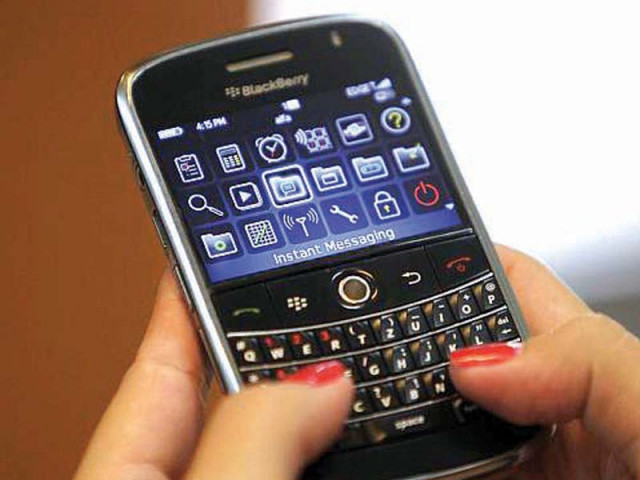Texting teachers: SMS-based monitoring off to encouraging start
L&NFBE receive real-time data from 4,000 informal schools across the province.

The project started by registering mobile phone numbers of all informal teachers at L&NFBE-run schools. PHOTO: FILE
Imagine access to details of enrollment, attendance and visits by monitoring officers in every school. Imagine the interventions that could be made in light of this information to improve schools.
In October last year, Literacy and Non-Formal Basic Education (L&NFBE) started an SMS-based monitoring system.
Irum Malik, a systems analyst at the L&NFBE, says she receives daily updates through SMS on 4,000 of 5,000 non-formal schools from various districts across the province. She says 3,000 more schools are being registered to be added to the monitoring system.
She says the purpose was to create a link between the L&NFBE and teachers in informal schools.
Malik says previously the department had lacked the capacity to create such a link with its teachers.
“Now there is a bridge connecting us to them,” Malik says.
She says the SMS-based monitoring system had been started in collaboration with the Urban Unit Department which also provided technical assistance.
The project started by registering mobile phone numbers of all informal teachers at L&NFBE-run schools.
Malik says training teachers in sending SMS in the correct format was a major task.
“They would make errors like typing the letter ‘O’ instead of the number zero,” she says. By December last year, the teachers began sending in regular texts in the correct format.
“Consider this: a woman teaching in one of our schools in Rajanpur feels connected. This empowers the teacher,” Malik says.
Malik says social taboos were a major hurdle early on in effective implementation of the system in Rajanpur.
She says there were people who refused to let female teachers use mobile phones.
“It was difficult for some families to comprehend why it was necessary for women at our schools to have a mobile in the first place,” she says.
Malik says Rajanpur and Dera Ghazi Khan put up greatest resistance in this regard. “These districts also have poor education indicators,” she says.
Malik says in addition to daily texts, the teachers send monthly reports regarding new enrolment at their schools, the number of dropouts and whether they have received their salary.
The department receives nearly 4,000 SMS messages everyday.
Teachers who fail to send in their texts are sent reminder texts requesting for the data.
Malik says the project is now looking for donors to provide mobile phones.
“We can encourage but cannot force them since the initiative is based on self-help and teachers are our partners in making it work.”
The L&NFBE Department hopes to develop a two-way SMS service to receive feedback from teachers on problems faced by them.
The department is also hoping to develop a data analysis mechanism to draw qualitative conclusions from the data.
Published in The Express Tribune, September 9th, 2013.


















COMMENTS
Comments are moderated and generally will be posted if they are on-topic and not abusive.
For more information, please see our Comments FAQ